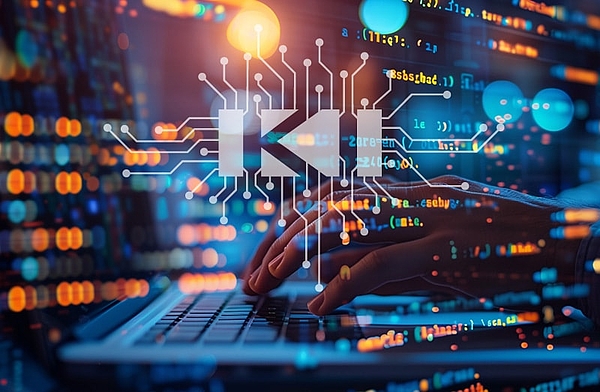
|
Artificial Intelligence is revolutionizing Software DevelopmentBy Karsten Theis Artificial intelligence (AI) is no longer in its infancy and is already having a huge impact on the way we live and work. However there is almost no other field on which it will have such a disruptive impact as on software development. According to a recent study, generative AI could increase productivity in this field by 70 percent. Tools like GitHub Copilot and Tabnine are already able to generate new code, and they are getting better and better. And I ask myself what does this means for the people who are developing software today, and what does it mean for us as a software company. To be honest, I don't yet have any clear answers to these questions. But one thing is sure: the job description of a software developer will change dramatically. I have no doubt that the demand for software will increase. Which means that we will continue to need software developers. But at present it isn't possible to say how many people will be developing software in the future and what qualifications these people will need. I see a clear trend away from conventional coding towards creating AI-compatible requirements and specifications. Understanding and formulating the requirements will account for the majority of the value added. This calls for close collaboration between software architects, business consultants and end users. This is already the case with regard to agile development, but the role of developer is changing. A global software development industry, which depends on orders placed by a wide variety of different industries, has emerged. How and from whom software development will be commissioned in the future may be subject to a disruptive change. Will the current trend toward offshoring survive? Will the prices for development activities increase, or will they collapse as the result of enormous overcapacity? Will more software be created overall and will it be developed faster, or is the market reaching a saturation point because customers are becoming a bottleneck for further growth? Will industrialized countries remain the center of this industry? It's possible that offshoring will decrease because AI will be taking over programming tasks previously outsourced to India and other offshore countries. But this is by no means certain as these countries are also developing AI-specific know-how. Microsoft is currently investing three billion US dollars in AI initiatives in India. 
AI will not replace software developers per se, but rather only those who do not understand how to exploit the potential it offers. And this potential is enormous. AI methods, like natural language processing and machine learning, automate code generation and – a task that is even more tiresome for software developers – the documentation of the programmed code. They analyze manually programmed code in real time and identify errors or inefficient algorithms. They also provide developers with support when designing complex software architectures. But caution is advised: AI is not infallible, and there is a risk that young software developers in particular will place too much reliance on it. A study published in 2022 indicated that programmers who generated their code with the help of AI believed that their solutions were more secure, even though the opposite was actually the case. AI-generated code can include security vulnerabilities that are more difficult to detect. And hackers can use AI to identify vulnerabilities in systems or to write malware. 
Most importantly, however, is the risk that the growing use of AI tools will lead to software developers not paying sufficient attention to their basic programming skills. This is a real dilemma because it means that they will lose one of the key skills that the increasing use of AI in software development demands, namely the ability to perform quality control. Somebody needs to be able to understand and check the results that AI generates and ultimately assume responsibility for ensuring that they fulfill their function. It's difficult to sue AI for damages in the event of an error. What does this mean for us as a software company that not only develops its own solutions but also implements sophisticated software development projects for customers? We need to invest heavily in developing our AI-specific know-how, which is something that we've been doing for some time now. We've introduced tools for automatic code generation, which have been very well received by our software developers, and we provide our employees with ongoing training in the use of these tools. We are also integrating AI as a tool in new applications, like the AI chatbot for navigation in digital product passports, which we developed as part of the Decide4ECO research project. But what happens to existing applications? Many of our customers operate large software solutions that involve millions of lines of code. Maintaining and further developing these solutions poses a real challenge, especially in light of the fact that the original developers are gradually retiring. Here, again, AI can be put to good use. We are working on training large language models using code from existing software with the aim of making the sheer mass of source code manageable and thus easy to maintain. You will soon be able to find out more about this in our newsletter. So keep on reading! Yours Karsten Theis |
|
| © PROSTEP AG | ALL RIGHTS RESERVED | IMPRINT | PRIVACY STATEMENT | YOU CAN UNSUBSCRIBE TO THE NEWSLETTER HERE. |

